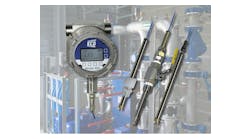The U.S. Environmental Protection Agency (EPA) and U.S. Department of Justice (DOJ) announced Wright Brothers Construction Co. and the Georgia Department of Transportation (GDOT) have agreed to pay a $1.5 million penalty and spend more than $1.3 million to offset environmental damages to resolve alleged violations of the Clean Water Act (CWA).
The civil penalty is one of the largest ever under the CWA provisions prohibiting the unauthorized discharge of dredged or fill material into waters of the United States.
The complaint alleges that between 2004 and 2007, Wright Brothers, with approval from GDOT, buried all or portions of seven primary trout streams in violation of the CWA. Wright Brothers was hired by GDOT to dispose of excess soil and rock generated during two GDOT highway expansion projects in northeast Georgia.
The contracts between GDOT and Wright Brothers specifically required Wright Brothers to obtain written environmental clearance from GDOT prior to using any site as a fill site. GDOT approved sites that included streams considered to be waters of the United States. These actions resulted in the unauthorized disposal of more than one million cubic yards of excess rock and soil, impacting approximately 2,800 linear feet of stream.
The EPA says burying and piping streams can destroy valuable aquatic habitat and threaten water quality. The reduced water quality may have adversely impacted downstream trout populations, which are a major recreational resource to the region. All of the streams that were filled are tributaries of either Lake Burton or Tallulah Falls Lake.
Under the settlement, the EPA says Wright Brothers and GDOT must perform injunctive relief measures, including purchasing 16,920 mitigation credits at an estimated cost of $1.35 million to offset the impacts to waters of the United States that cannot be restored. The credits must be purchased from mitigation banks servicing the area in which the violations occurred. A mitigation bank is a wetland, stream, or other aquatic resource area that has been set aside for the purpose of providing compensation for impacts to aquatic resources that occurred under a federal, state, or local permit.
The EPA says Wright Brothers and GDOT will also remove the piping from and restore the bed and bank of a 150-foot stream channel that was impacted from the disposal activities. The estimated cost of this work is $25,000. When complete, the restoration activities and injunctive relief measures will mitigate the 2,800 feet of stream impacted by the CWA violations. The settlement is subject to a 30-day comment period and final court approval. More information on the settlement can be found at www.epa.gov/compliance/resources/cases/civil/cwa/wrightbrothers.html.

